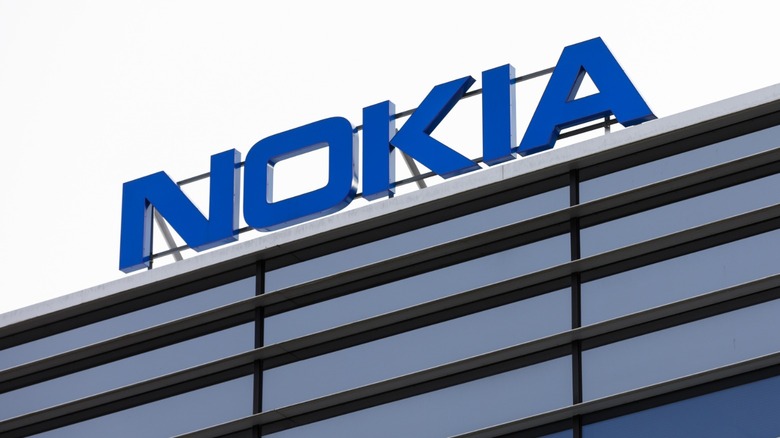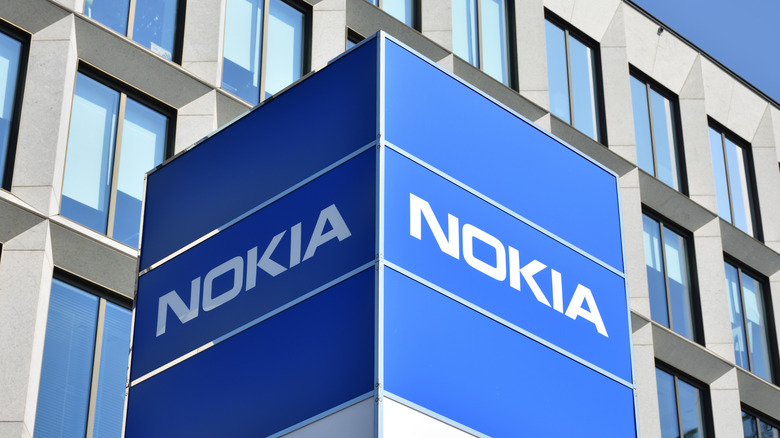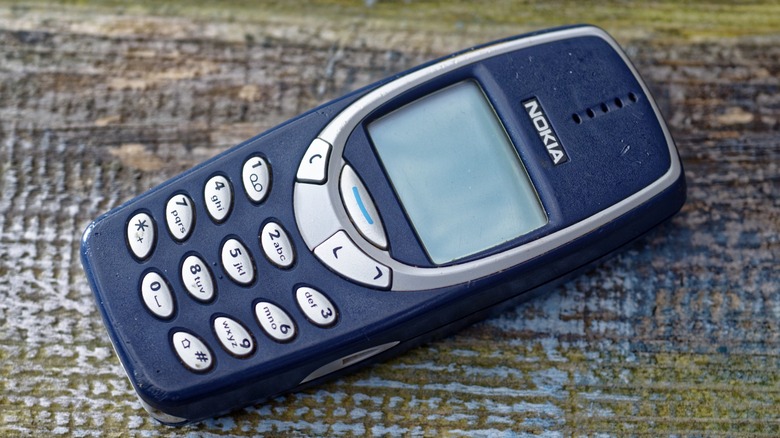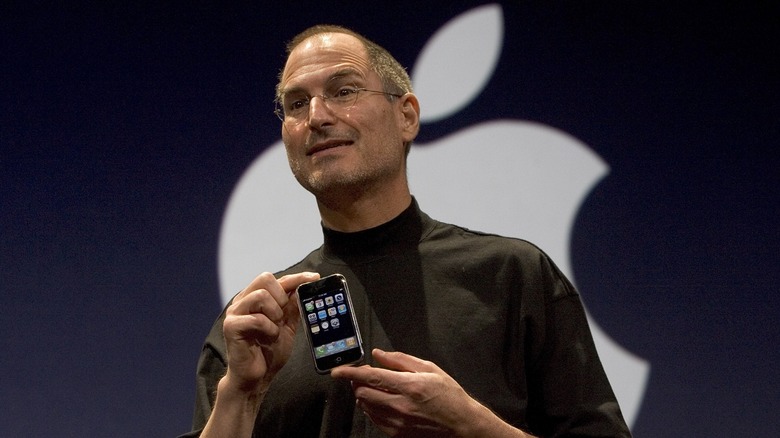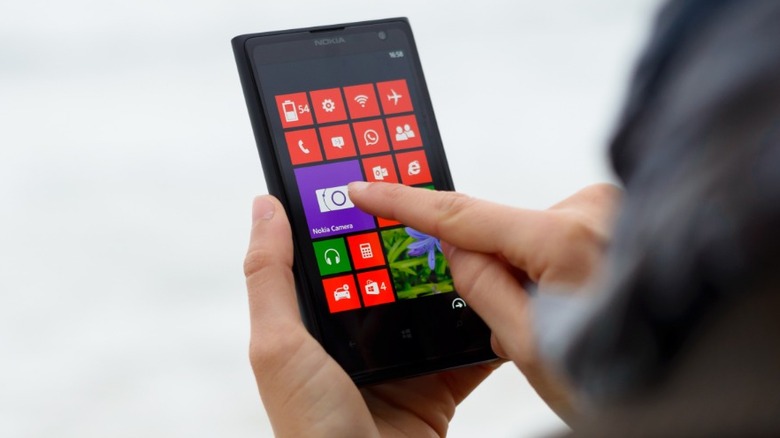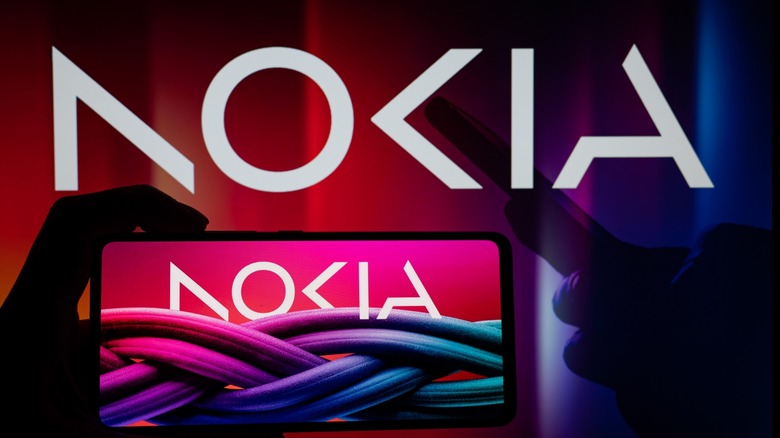What Happened To Nokia? The Rise And Fall Of A Tech Giant
In the 2000s, everyone had a Nokia phone. Known and desired for its durability and ease of use, it became the preferred device for many worldwide. According to the BBC, Nokia's market share in 2007 was dominant, maintaining a 49.4% hold over the entire mobile phone market. While it would continue to lose market share over the subsequent years, Nokia managed to maintain the top position for over a decade before it started to decline.
Fast-forward to 2013 — just six years later — and the company made up less than 3% of the total mobile phone market and sought to exit the industry altogether. With such a meteoric rise and what seemed like complete control over the industry, it makes sense to wonder how it all went wrong.
Like most stories of massive business failures, it was likely not a result of just one poor action but a compilation of unfortunate circumstances and decisions. However, as it turns out, not everything is so dark for the company, as it still operates today.
Nokia had humble beginnings
It may surprise some to learn that Nokia didn't even start as a tech company at all. Established in 1865 in Finland, Nokia started as a pulp mill for paper manufacturing. Named after the town in which it was based, the company partnered with local companies, like Finnish Cable Works, as it expanded its operations.
Eventually, it merged with Finnish Cable Works and Finnish Rubber Works to form the Nokia Corporation. It would go on to enter and become a major factor in the electronics industry by the 1970s. While it still retained its other business lines, it would be largely known for its mobile phones. Ultimately, it would start to divest money into its rubber and paper operations and concentrate solely on tech and phones.
Nokia began its journey in the mobile phone market in the 1980s as it went on a string of acquisitions to solidify its position as a leading global tech firm. With acquisitions of Salora, Mobria, and the Information Systems division of Ericsson, the company was quickly on its way to producing its first mobile phone. This would be the 1982 Mobria Senator car phone, which would go on to influence designs for phones that we use to this day.
The early 2000s was the golden era for Nokia
The early 2000s was arguably the golden era for the company, with its best-selling cellphones, the Nokia 1100 and Nokia 1110, released in 2002 and 2005, respectively. This would result in the company's most profitable year ever, earning them $51 billion in sales in 2007, according to Statista.
This was also, coincidentally, the same year the first iPhone was released, which was considered a new and emerging technology at the time. Unfortunately, no one saw the future coming, including Nokia, as the iPhone would be one large factor in its downfall.
Nokia would continue this success to 2010, with over 30% of the market share over the entire mobile phone industry. This, however, would all come to a screeching halt within just a few short months as competitors like Samsung, HTC, and Apple began to dominate the industry. By April 2012, Samsung had taken over the top spot from Nokia. While Nokia would plan a few more product offerings, it would eventually exit the industry altogether.
Nokia refused to evolve
There were a variety of reasons that Nokia started to fall out of favor with consumers, but perhaps the biggest reason had to do with the phones themselves. While the company did dominate the mobile phone industry for over a decade, it did not dominate the smartphone industry, which was just emerging at the time with stiff competition from companies like Motorola, Samsung, and Huawei. Consumers were willing to pay for a slightly more expensive device with a good user experience and app support.
Nokia phones ran on Symbian OS, which seemed inadequate and obsolete to iPhone and Android users. In a leaked internal memo from 2011, Nokia's then-CEO, Stephen Elop, lamented that the company still did not "have a product that is close to their experience" when speaking directly about the iPhone. While a few years of floundering might not seem so devastating, it only took that short span of time for Nokia's flagship product to become obsolete.
Nokia began to adapt too late
By the time Nokia jumped on the smartphone wave, it was too late and with the wrong partner. Instead of creating devices compatible with the new and popular Android OS, Nokia instead opted to go with Microsoft and its Windows Phone 7 operating system in 2011. This would be disastrous for the company in retrospect, with Nokia posting its second quarterly loss for the first time in nearly two decades.
While the company would continue to flounder due to increased competition in the space, some of its phones, like the newer Lumia models, were actually somewhat competitive. However, it was too little, too late, and in September 2013, Nokia officially sold its mobile and devices division to Microsoft.
However, that wasn't the end for Nokia, and after a completely failed mobile launch from Microsoft — which lost at least $8 billion for the company — Nokia mobile phones would once again be sold. This time, it would be by a company founded by former Nokia employees called HMD Global. Nokia phones today are being manufactured by Foxconn subsidiary, FIH Mobile.
The future of Nokia
Nokia exists today, albeit it is concentrating on new areas of tech. Along with a recent re-brand, the company refocused its operations on telecommunications and industrial digitalization, while HMD Global still sells phones under the Nokia name. While the failings of its mobile phone branch are one of the most epic falls in the history of any global corporation, the company itself is far from a failure.
In addition to a licensing agreement with HMD Global, the company also acquired Alcatel-Lucent and Bell Labs to work on cutting-edge technology and continues to be a major patent licensor to various mobile phone vendors worldwide. The company has a line of affordable and more high-end cell phones and an affordable line of tablets that it sells online today.
Ultimately, while Nokia failed miserably after holding the top position in the mobile phone market, it was divested from the business line in time. In reality, it's Microsoft that ended up losing money in the deal and suffering from Nokia's failures. The company is now successful, boasting positive annual gross profit in the billions since 2021.
